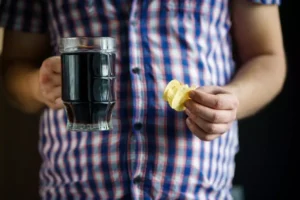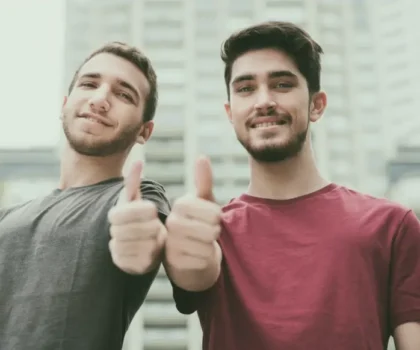
People with this condition become physically or verbally aggressive and may cause emotional or physical harm to other people or material items. Intense anger happens when the level of emotion is closer to fury or rage than it is to mild irritation. Intense anger can result in aggression, often hostile behavior with an intent to harm. Because https://ecosoberhouse.com/ of the established link between aggression and alcohol, co-treatments have been developed that can also address anger while drinking. Instead of dwelling on the problem, shift your focus to finding solutions. Break down complex issues into manageable steps, brainstorm alternative approaches, and consider the potential outcomes of each.
Brain chemistry, alcohol, and rage
Anger has been shown to increase stress levels, and stress levels can increase the risk of intense anger. When alcohol suppresses these regulatory functions, it can affect how you express your thoughts and emotions, including anger. Anger is an emotion made up of many different feelings like dissatisfaction, displeasure, hurt, and frustration.
Alcohol, Aggression, and Violence: Psychiatric Comorbidities
If you have a natural tendency to be angry, drinking alcohol may cause you to become aggressive. There’s no better way to put it — properly addressing alcohol-fueled aggression is crucial for your well-being and relationships. By seeking recovery for problems with alcohol and anger, you can work toward a more positive life. In addition to receiving guidance from experienced professionals, support groups are effective for building relationships.
Providing reassurance and support
- Luckily, that clarity can be beneficial, because it means that you have a chance to put your foot down and stop what you’re doing.
- As a whole, alcohol use naturally heightens emotions, and for people who are predisposed to aggressive tendencies, it can quickly make bad scenarios worse.
- Medical detox is typically considered the optimal method for allowing alcohol to safely process out of the body while under continual medical supervision.
- The CBT condition in Project MATCH which focused on enhancing cognitive-behavioral coping skills included two optional sessions focused on anger.
- “Later on in the night, you may find someone crying or becoming overly emotional, and this is because, as the alcohol wears off, there is a big drop in serotonin below baseline,” Tietz explains.
Are aggressive people more likely to drink or does drinking make people more aggressive? Are there certain genetic factors that predict whether someone will be an angry drunk? When we look at some of the science concerning how alcohol affects the brain, we see that the angry drunk may be a combination of several factors.
Links between Anger, Aggression, and Alcohol Addiction
- Furthermore, an angry drunk may not feel like consequences matter, making it seem like a good idea from their perspective to create or partake in a dangerous situation.
- The connection between alcohol consumption and anger is complex, with alcohol often acting as a catalyst that amplifies underlying challenges related to anger management.
- It’s common for alcohol and anger to be stereotypically lumped together, but many people labeled “angry” while drinking may actually be experiencing aggression or hostility.
- Second, although therapists completed intensive training and training cases, measures of therapist adherence or competence were not obtained.
- In order to maintain adherence to the treatment protocols, therapists referred to a condition-specific and session-specific content outline during each session.
- Clinically, not all alcohol-involved clients accept the philosophies and approaches of AA and other mutual-help groups.
- Drinking alcohol releases norepinephrine into the brain, a stimulant that can decrease our inhibitions while increasing our impulsivity.
In the study, nearly 500 participants completed a questionnaire about their inclination to consider future outcomes. Afterward, they either drank an alcoholic beverage (orange juice mixed with alcohol) or a placebo (the same concoction but with minimal alcohol). In rodent studies, glutamine is linked to heightened agitation and aggression during alcohol withdrawal (7). Additionally, repeated drinking may alter GABA receptors and even damage cells, causing reduced sensitivity to the body’s own relaxing neurotransmitter (8).

According to research compiled by the National Institute on Drug Abuse, alcohol use is a considerable contributing factor to sexual assault. Similarly, in nearly 40% of violent incidents, surveyed individuals from the United Kingdom said they believed their perpetrator was under the influence of alcohol. While drinking alcohol alcoholic rage syndrome isn’t the sole reason for assault, it plays a substantial role in whether someone commits a violent crime. When it comes to anger specifically, people may experience a phenomenon called “alcohol myopia” in addition to their already heightened emotions. This scenario involves losing your sense of perception under the influence.
- Providing anger management skills to such individuals might help lower anger and conflict that would alter these negative consequence trajectories.
- Dealing with an angry alcoholic is challenging, and sadly, it’s likely your behavior is taking a toll on your friends’ and loved ones’ willingness to spend time with you in certain situations.
- According to the National Council on Alcoholism and Drug Dependence (NCADD) alcohol more so than any other substance is a contributing factor in cases of rape, murder, spousal and child abuse, and assault.
- Being able to talk to your boss about mental health is difficult, but studies have shown that channeling your anger in a productive way allows you to think more creatively and better advocate for your needs.
Other Anger Management Strategies

The researchers assigned the participants (54 males and 60 females) to compete in a competitive aggression paradigm in an intoxicated or sober state. The result was that the intoxicated men were more aggressive than the sober men; however, in the circumstances where the women were highly provoked, both the intoxicated and sober women displayed higher levels of aggression, which could resemble the men. This suggested that both the women and men can be equally aggressive and alcohol does not seem to play a prominent role in the gender biases in aggression. There is a clear link between alcohol consumption and increased aggression levels.

How Alcohol Affects Anger and Aggression

The findings were explained by emphasizing that concern for the future involves greater prefrontal cortex resources that help inhibit the excessive impact of alcohol. Becoming angry or irritable when you drink is a relatively common experience — an often-cited body of research by the World Health Organization notes that aggression has a closer link to alcohol than any other kind of psychoactive drug. While stimulants, such as coffee and Adderall, target dopamine receptors in the brain, alcohol and other depressants target the brain’s GABA receptors.
Even if you don’t find drinking makes you aggressive, you might find drinking sometimes leads to an argument. So, why not cut down together and enjoy all the benefits that it can bring. If you have been the victim of violent or aggressive behaviour, report it to the police. Call 999 if anyone is in immediate danger, 101 it it’s not an emergency, or you can report crime to the police online.
And, statistics show that angry drunks are more prone to end up in trouble with the law. All treatment sessions included a breath test to ensure that participants had .000 BAC; if not, the session was rescheduled. Sessions began with reviews of cravings, high-risk situations, and any alcohol consumption between each session. There was a brief mention of AA attendance and coverage of drink refusal skills and relapse prevention. Based on the content of treatment protocols, anger regulation material comprised approximately 0.4% of the AAF condition and 64.2% of the AM condition. AA-related material comprised approximately 45.0% of the AAF condition and 5.4% of the AM condition.
